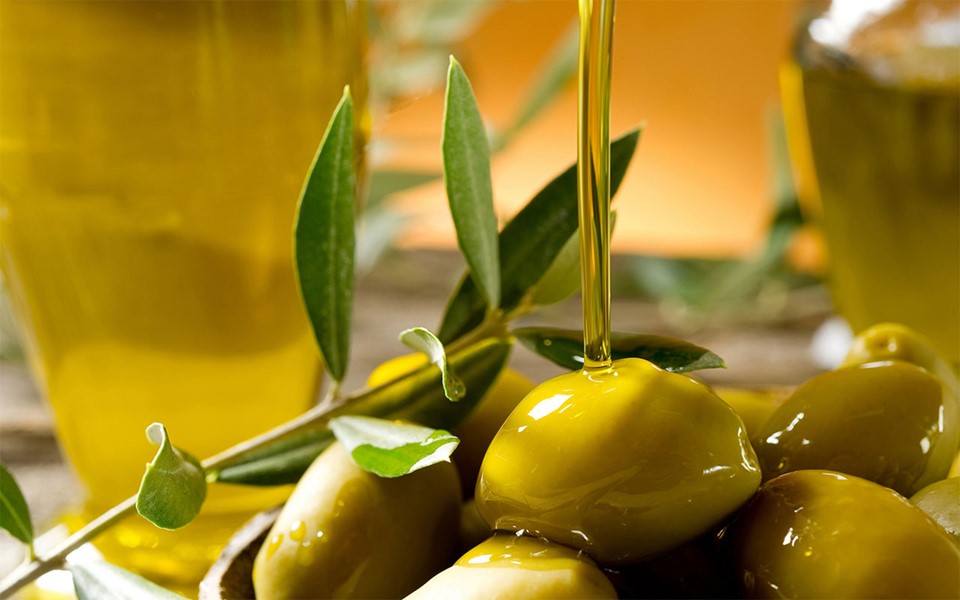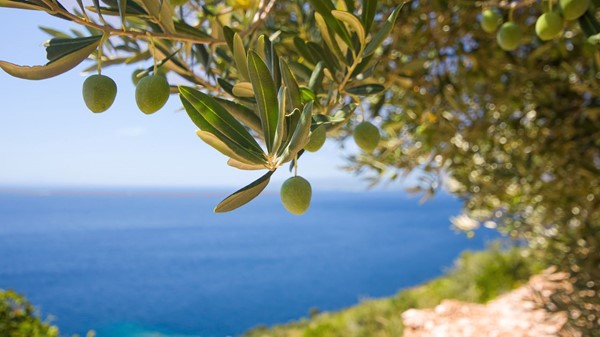Extra virgin olive oil
The best olive oils carry the label of ‘extra virgin’
Extra virgin olive oil has the best bioactive components of virgin olive oil, which are particularly abundant and ensure high nutritional value and exceptional quality. They have an almost ideal composition: a good ratio of saturated and unsaturated fatty acids, and many components such as polyphenols, tocopherols and alcohols that provide the body with a nutritional boost. Numerous scientific studies have shown that they have a positive effect on the prevention of cardiovascular diseases.
For the production of virgin and extra virgin olive oil, olive tree fruits are processed exclusively using mechanical means, in conditions that do not lead to a change in the composition of the oil, and without the addition of chemical or biochemical additives.
The difference between virgin and extra virgin olive oil is in the content of free (oleic) fatty acids.
Extra virgin olive oil (olio di oliva extravergine) is obtained after the first pressing of high-quality olive fruits, and its free fatty acids do not exceed 0.8%.
Virgin oil (vergine) is obtained after the first pressing of second-category olive fruits, and its acidity is slightly higher, but the content of fatty acids still does not exceed 2%.
Extra virgin olive oil must meet strict sensory criteria and contain no more than 0.8 grams of free fatty acids, expressed as oleic acid, per 100 grams of oil. A higher amount of free fatty acids in the oil can trigger a series of changes that result in the organoleptic deterioration of the oil. Extra virgin olive oil is the best oil obtained from the olive fruit in both nutritional and organoleptic terms.
Virgin olive oil is a product obtained directly from the olive fruit exclusively by mechanical means. It contains a maximum of 2 grams of free fatty acids, expressed as oleic acid, per 100 grams of product.
The smell and taste do not deceive!
This precious oil also has ‘perfect’ sensory properties - the right taste, smell and colour. The best extra virgin olive oil should not have a strong smell or taste. Extra virgin olive oil has an unmistakable smell and taste, which resemble olive leaves or fruit. The taste of the oil may also be reminiscent of artichokes, green apples or grass. A desirable characteristic is also the piquancy or mild bitterness felt in the throat, which works in harmony with the fruity taste of the oil.
The olive tree has been the backbone of people's lives in Istria for thousands of years
The people of the Mediterranean have been using olive oil in their diet for centuries and the result is impressive: they are among the people with the longest life expectancy. It is no coincidence that they prefer olive oil to water and that they believe olive oil to have medical properties - because it really does.
Epidemiological studies have shown that the Mediterranean population leads a healthy lifestyle and records a significantly lower rate of degenerative diseases, especially cardiovascular diseases and cancer. Olives contain significant amounts of hydroxytyrosol and tyrosol, squalene and terpenoids. Scientific studies agree that these molecules have anticarcinogenic properties.
The olive tree is a symbol of the Mediterranean, and it is said that the Mediterranean ends where the olive disappears.
In Istria, people have been using it in various ways since ancient times: as food, medicine, fuel, and to make items such as pottery, jewelry, furniture etc. It has been the backbone of people's lives in Istria for thousands of years.
In recent years, the beneficial aspects of the so-called Mediterranean diet have been made clearer, including virgin olive oils being recommended as a source of fat.
Olive oil cures more than 60 diseases
Extra virgin olive oil helps with diabetes, high cholesterol and even some types of cancer. It is good for the bones, joints, skin, liver and intestines.
 ENG
ENG
 HRV
HRV
 DEU
DEU
 ITA
ITA



